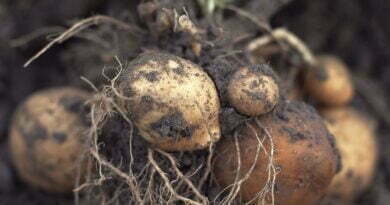From Garden to Table: Delicious Recipes Using Allotment Produce
Allotment gardening is a wonderful way to grow your own fresh produce, connect with nature, and promote sustainability. One of the great benefits of allotment gardening is the ability to harvest your own crops, and use them in delicious and healthy recipes. Here are some tasty and nutritious recipes using allotment produce, from garden to table:
Roasted Root Vegetables
Roasted root vegetables are a simple yet delicious way to use up any excess produce from your allotment. Simply chop up a selection of root vegetables such as potatoes, carrots, parsnips, and beets, drizzle with olive oil, sprinkle with salt and pepper, and roast in the oven for around 30 minutes at 200°C. You can also add herbs such as rosemary or thyme for extra flavor.
Tomato and Basil Salad
Tomatoes are a staple of any allotment garden, and this simple tomato and basil salad is a great way to showcase their flavor. Slice a selection of ripe tomatoes, drizzle with olive oil and balsamic vinegar, and sprinkle with chopped fresh basil. Serve as a side dish or as a light lunch with some crusty bread.

Courgette and Feta Frittata
Courgettes are a versatile vegetable that can be used in a variety of dishes, including this tasty frittata. Sauté sliced courgettes in a pan with some chopped onions until they are soft and golden. Whisk up some eggs with a splash of milk, season with salt and pepper, and pour over the courgettes. Sprinkle with crumbled feta cheese and bake in the oven at 180°C for around 15 minutes, until the eggs are set.
Beetroot Hummus
Hummus is a healthy and delicious snack that is easy to make at home. Add some roasted beets to your hummus for a vibrant and nutritious twist. Simply blend a can of chickpeas, a few roasted beets, a clove of garlic, some tahini, lemon juice, and olive oil together in a food processor until smooth. Serve with pita bread or vegetable sticks for dipping.
Summer Vegetable Pasta
Summer vegetables such as zucchini, cherry tomatoes, and peppers are abundant in allotment gardens during the summer months. This simple pasta dish is a great way to use them up. Sauté sliced zucchini, cherry tomatoes, and sliced peppers in a pan with some garlic and olive oil. Cook some pasta according to the package instructions, and toss with the vegetables. Top with some fresh basil and grated parmesan cheese for a tasty and healthy meal
Roasted Vegetable Quiche:
Roast a selection of your favorite vegetables, such as peppers, zucchini, onions, and tomatoes, and then use them as the filling for a savory quiche. Add eggs, cream, cheese, and herbs for a delicious and healthy meal.
Homemade Salsa:
Mix together diced tomatoes, onions, peppers, and fresh herbs to create a delicious homemade salsa. Use it as a dip for tortilla chips or as a topping for grilled meats and vegetables.

Grilled Vegetable Skewers:
Thread your favorite vegetables onto skewers and grill them until they’re tender and lightly charred. Serve them with a flavorful dipping sauce for a tasty and healthy appetizer or side dish.
Garden Salad:
Combine a variety of fresh greens, such as lettuce, spinach, and arugula, with sliced tomatoes, cucumbers, and other vegetables from your garden. Drizzle with a homemade vinaigrette for a healthy and flavorful salad.
Garlic and herb roasted potatoes with green beans
A delicious and healthy side dish that is perfect for any occasion. Baby potatoes are roasted in the oven with fresh herbs, garlic and olive oil until golden and crispy, while the green beans are blanched and then sautéed with garlic for added flavour. This dish is simple to prepare and makes a great addition to any meal.

Cooking with allotment produce is a great way to enjoy delicious and fresh food while also promoting sustainability and saving money. By growing our own fruits and vegetables, we can ensure that we are consuming organic, chemical-free produce that is bursting with flavor and nutrients.
Moreover, using allotment produce in our meals is a sustainable practice that reduces our carbon footprint. By avoiding transportation emissions associated with imported produce, we can significantly lower our contribution to climate change. Additionally, allotment gardening is a great way to reduce food waste by using all the produce we grow and composting any scraps, thus promoting a circular and sustainable food system.
In terms of cost savings, growing our own produce can be an effective way to reduce our grocery bills. By producing our own food, we can cut out the middleman and avoid the markup that grocery stores often charge. Furthermore, we can avoid buying produce that may be out of season and therefore more expensive.
Cooking with allotment produce is a sustainable and cost-effective way to enjoy delicious and fresh food. By incorporating these recipes into our diets, we can fully appreciate the taste and health benefits of fresh produce while also supporting a more sustainable food system.




